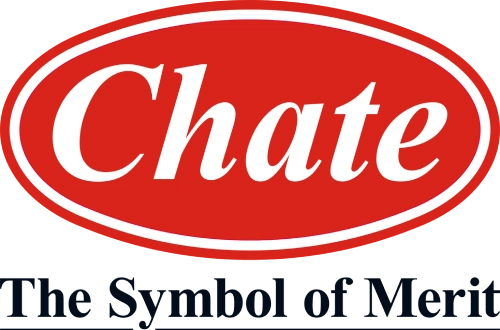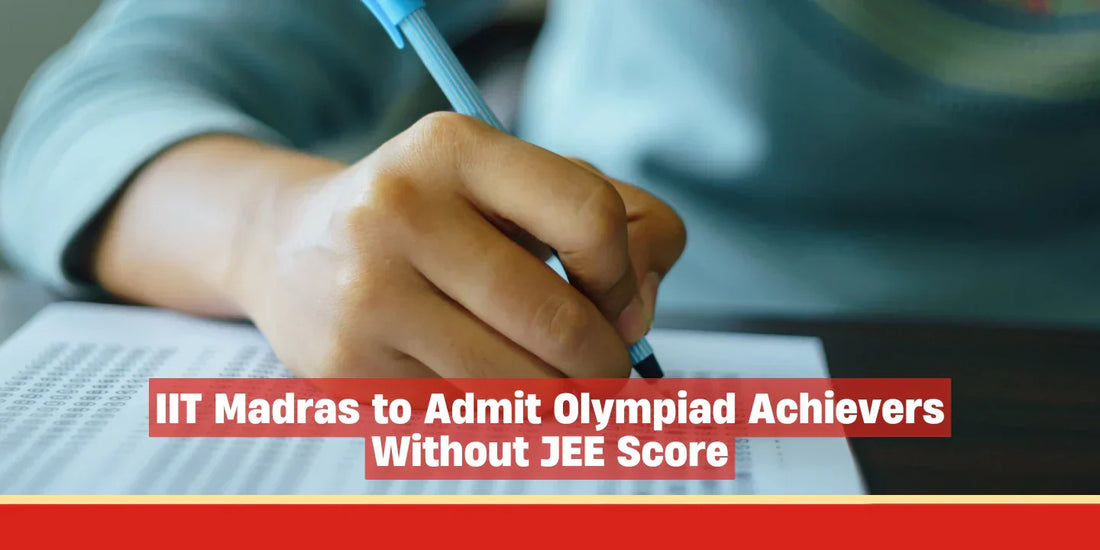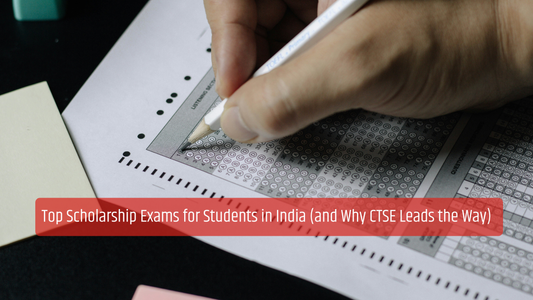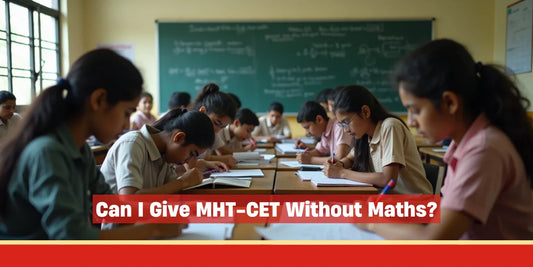Introduction
In a bold and progressive move, the Indian Institute of Technology Madras (IIT Madras) has announced a special admission pathway for exceptional young minds who have excelled in national and international Olympiads. Starting from the 2025-26 academic year, students who have proven their excellence in subjects like Physics, Chemistry, Mathematics, Informatics, and Biology can now secure admission without appearing for the Joint Entrance Examination (JEE).
This landmark decision marks a new era in India’s higher education system, giving recognition to students who demonstrate problem-solving skills, analytical thinking, and creativity beyond traditional exams. The initiative, known as ScOpE (Science Olympiad Excellence), represents a significant step towards identifying and nurturing world-class talent in science and technology.
What Is the Scope Admission Scheme?
The Science Olympiad Excellence (ScOpE) admission process by IIT Madras is designed to recognize students who have excelled in Olympiads rigorous competitions that test conceptual understanding and analytical ability at the highest level.
Through this special scheme, Olympiad achievers will be eligible to apply for direct admission to IIT Madras’s undergraduate programs such as B.Tech, BS, and dual-degree courses.
Under this new model:
- Two additional seats per course will be reserved under ScOpE.
- Out of these, one seat will be specifically reserved for female candidates, ensuring gender inclusivity and encouraging more women in STEM.
This means the ScOpE program will not affect the existing JEE-based admissions but will run parallel to the traditional process with a dedicated admission channel.
Who Can Apply for Admission Through Scope?
The eligibility criteria for the ScOpE scheme ensure that only students with genuine academic excellence and proven Olympiad experience can apply.
Here’s what applicants must meet:
1. Educational Qualification:
- Must have completed Class 12 (or equivalent) in 2025 or earlier with the required subjects relevant to the chosen IIT Madras program.
2. Age Requirement:
- Students must meet the same age criteria as those appearing for JEE (Advanced).
3. Olympiad Participation:
- Candidates must have attended at least one of the following Olympiad training or selection camps in the past four years:
- International Mathematical Olympiad Training Camp (IMOTC)
- Orientation-cum-Selection Camps (OCSCs) for Physics, Chemistry, or Biology Olympiads
- International Olympiad in Informatics Training Camp (IOITC)
4. Nationality:
- Must be an Indian national or hold an OCI/PIO card issued before March 4, 2021.
Restriction:
- Students who have already been admitted to any IIT through JEE or other routes are not eligible to apply via ScOpE.
These criteria ensure that only students who have already demonstrated their abilities on the toughest academic platforms are considered for admission.
How to Apply for IIT Madras Scope Admissions
The application process for the ScOpE scheme will be fully online and conducted independently of the JoSAA (Joint Seat Allocation Authority) system used for JEE admissions.
Application Steps:
- Visit the official ScOpE portal: jeeadv.iitm.ac.in/scope
- Registration will open on June 3, 2025.
- Fill in personal, academic, and Olympiad participation details.
- Upload proof of participation in the eligible Olympiad training camp(s).
- Submit the application and await selection confirmation.
The selection process will focus primarily on Olympiad performance and may include a review of achievements and academic background.
Successful candidates will receive direct admission offers into IIT Madras’s undergraduate programs under the special ScOpE quota.
Why IIT Madras Introduced the ScOpE Pathway
India’s IIT system has long been known for its academic rigor and competitive admission process. The Joint Entrance Examination (JEE Advanced) is considered one of the world’s toughest exams, with lakhs of students competing for a limited number of seats every year.
However, many educationists and scientists have argued that this system may sometimes overlook brilliant minds who excel outside conventional testing patterns.
Recognizing this, IIT Madras Director Prof. V. Kamakoti emphasized the need to identify true innovators and problem-solvers students who think creatively and go beyond rote learning.
He stated:
“The biggest puzzles of the world are solved not by repeating textbooks, but by those with the courage to break them piece by piece and build miracles for future generations.”
This vision aligns with India’s National Education Policy (NEP) 2020, which promotes flexible pathways to recognize diverse talents, creativity, and real-world problem-solving abilities.
Impact on Students and the Education System
The ScOpE scheme represents a paradigm shift in how talent is recognized and rewarded in India’s premier institutes.
1. Recognition Beyond JEE
For decades, JEE has been the only gatekeeper to IITs. Now, students who demonstrate excellence in Olympiads platforms known for testing deep understanding—can gain recognition based on intellectual merit rather than exam-specific preparation.
2. Encouraging Real Learning
Olympiad preparation focuses on conceptual clarity, logic, and analytical reasoning—skills essential for success in engineering and research. This move encourages students to engage deeply with science and mathematics instead of relying solely on memorization.
3. Reducing Exam Pressure
Every year, millions of students face immense stress preparing for JEE. ScOpE provides an alternate route for students who excel in Olympiads but might not perform their best under JEE’s pressure-driven format.
4. Promoting Inclusivity
By adding an extra seat per course and reserving one for female candidates, IIT Madras has taken a step towards greater gender balance and inclusivity in technical education.
5. Nurturing Research-Oriented Talent
Olympiad achievers are often the ones who go on to pursue scientific research, innovation, and entrepreneurship. ScOpE ensures that IIT Madras attracts such high-caliber minds who can contribute meaningfully to India’s scientific progress.
Why Olympiad Achievers Deserve This Opportunity
Olympiads are among the toughest academic competitions in the world. The students who reach the training camp or international level are already among the top 0.01% of academic performers in their field.
Preparing for Olympiads requires:
- Deep understanding of scientific concepts.
- Creative problem-solving.
- Persistence and independent thought.
- Dedication to learning beyond the school syllabus.
These qualities align perfectly with the ethos of IIT education, where innovation, critical thinking, and research take center stage.
By admitting Olympiad achievers directly, IIT Madras is recognizing the depth of knowledge and creativity that such students bring to the institution.
Global Perspective: How Other Countries Recognize Olympiad Talent
This initiative also brings India in line with global best practices. Leading universities around the world such as MIT, Stanford, and Cambridge often offer direct admission or scholarships to international Olympiad medalists.
In countries like Russia, China, and the USA, Olympiad winners automatically qualify for top science and technology institutes.
IIT Madras’s ScOpE program places India’s education system on a similar path, ensuring that academic brilliance and creativity are rewarded just as much as standardized test performance.
What This Means for the Future of IIT Admissions
While the ScOpE pathway currently applies only to IIT Madras, it could set a precedent for other IITs to follow. If successful, similar admission schemes may soon be implemented across the IIT network, creating multiple routes for deserving students to enter India’s top engineering institutions.
It also reflects a shift towards holistic evaluation considering students’ achievements, curiosity, and real-world skills alongside standardized scores.
This could eventually help transform the IIT admission landscape into one that balances merit, creativity, and diversity.
Expert and Student Reactions
The announcement has been met with widespread appreciation from educators, students, and parents.
Educationists have praised the initiative as “a step in the right direction” to recognize non-traditional academic excellence.
Students preparing for Olympiads see this as a powerful motivation to pursue their subjects with greater passion and depth.
Many parents believe this will reduce the obsession with coaching centers and allow children to explore academics with genuine interest and curiosity.
Challenges Ahead
While the ScOpE program is revolutionary, its implementation will come with challenges:
- Ensuring transparency and fairness in the selection process.
- Handling applications across multiple Olympiad categories.
- Maintaining academic standards and balance with JEE entrants.
However, IIT Madras’s well-established reputation for innovation and excellence suggests it is well-equipped to handle these complexities effectively.
Conclusion
The IIT Madras ScOpE initiative marks a turning point in India’s approach to identifying and nurturing scientific talent. By opening its doors to Olympiad achievers without requiring a JEE score, IIT Madras has taken a significant step towards recognizing excellence beyond exams.
This move celebrates intellectual curiosity, creativity, and true academic brilliance the very qualities that define great scientists and innovators.
At Chate Coaching Classes, we believe this decision will inspire countless students to explore science and mathematics more deeply and remind them that learning is not just about clearing exams, but about understanding, discovering, and creating.
The future belongs to those who think differently and IIT Madras’s ScOpE program is proof that India is ready to empower them.










